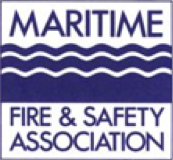In 1991 the Maritime Fire & Safety Association (MFSA) recognized the potential for disastrous situations as the ships passed through these areas.

There was a time, in the not too distant past, when vessels transiting the Columbia River would pass through “dead spots” of radio coverage. Dead spots are areas along the river where radio communications are virtually impossible due to the geography of the surrounding landscape.
In 1991 the Maritime Fire & Safety Association (MFSA) recognized the potential for disastrous situations as the ships passed through these areas.
MFSA is committed to ongoing investments to maintain an effective radio communications system. We focus on providing interoperability with vessels, regulators, fire agencies and response organizations.
Sites, all connected by microwave, were set up at Megler Mountain, Nicolai Mountain, Green Mountain, and on top of the 200 Market Building with the command and control consoles at the Merchants Exchange.
FPAAC was formed in the aftermath of the Protector Alpha Ship Fire to set forth a comprehensive system ensuring effective response shipboard fires in the Lower Columbia Region.
Currently comprised of 13 fire agencies located throughout the river system, these agencies voluntarily contribute both staff time and equipment costs for participation in meetings, drills and other training exercises.
© 2025 coursetakers.com All Rights Reserved. Terms and Conditions of use | Privacy Policy